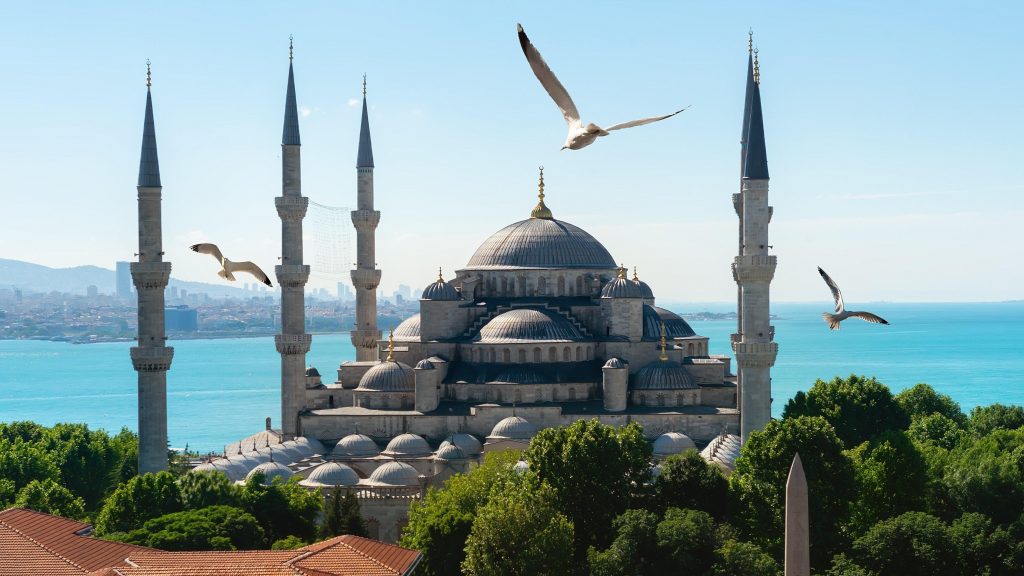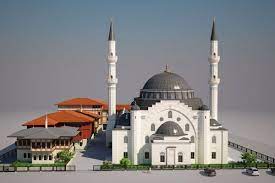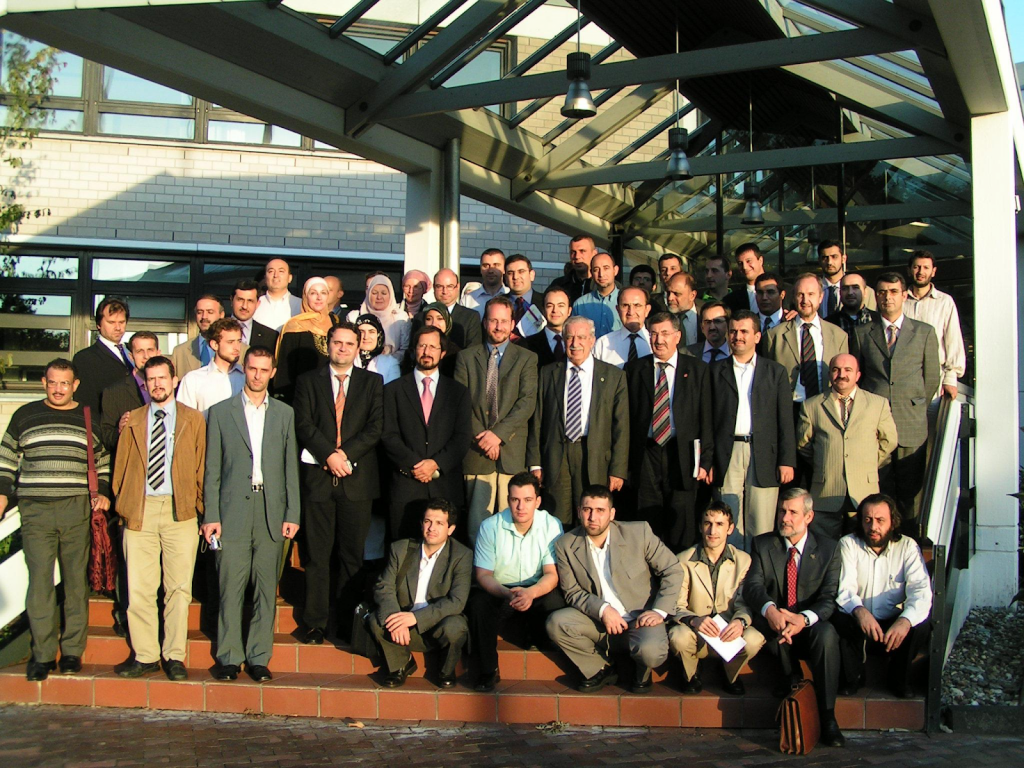The mosque is at the heart of the muslim community and is not only a place of prayer. It is also a place for study and the transmission of knowledge.
The word mosque originates from the Arabic word masjid which means place of prostration. Prostration is the most visible expression of submission to the Creator of the Universe.
The muslims prostrate five times a day, at dawn, midday, mid afternoon, sunset and finally at night, when the red light of the sunset has completely disappeared from the sky. Anywhere the surface of the earth, which is not in some way polluted, can be a place of worship and prostration.
Nevertheless clean and protected places have always been reserved by muslims at the centre of their cities since the beginning of Islam as places for the congregational prayer, these places are known as mosques. The mosque is at the heart of the muslim community and is not only a place of prayer. It is also a place for study and the transmission of knowledge. Some mosques were even schools and universities.
The first mosques were also sites for local governance where decisions upon the affairs of the local community were taken and were also places of public gathering. A series of charitable institutions built themselves on to the great mosques of the Islamic world. Notable amongst these were hospitals, hostelry for travellers, dining areas for the poor, orphanages, schools, public baths and often rent free market places. These various institutions reflected the cellular structure of a caring and generous society built purely on the principle of pleasing the Creator





